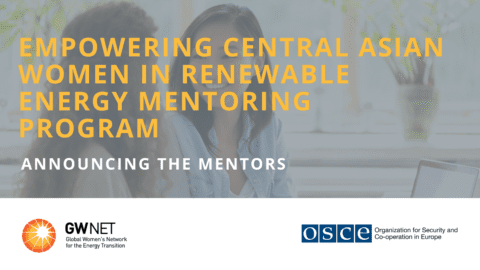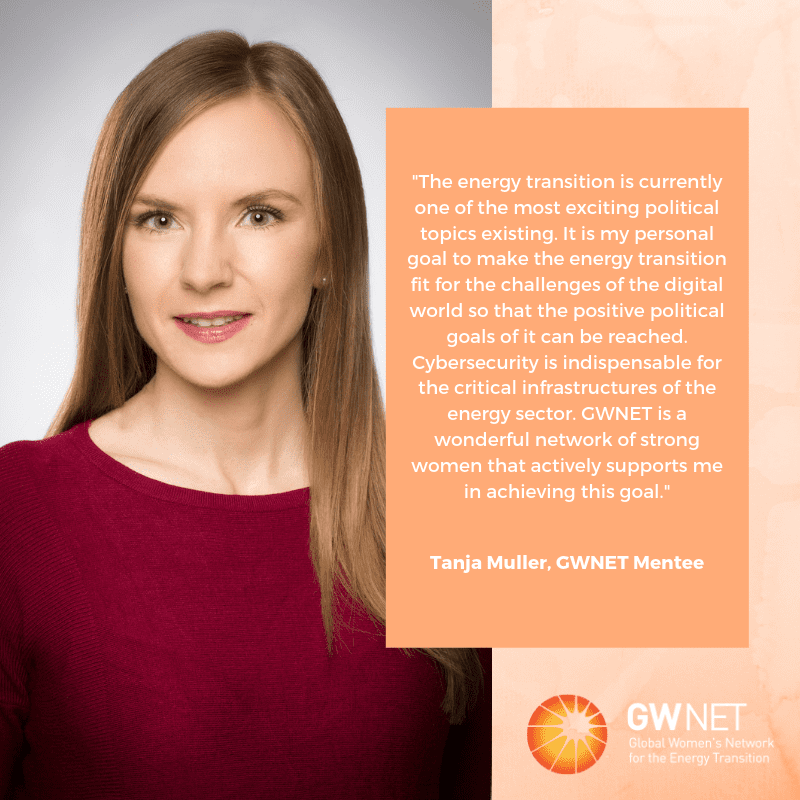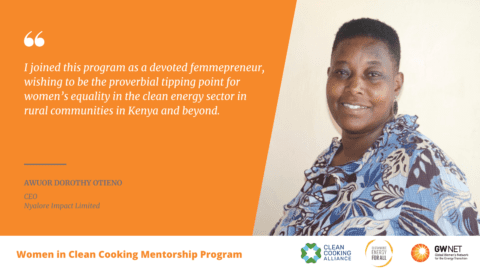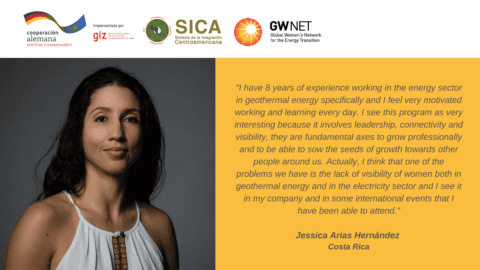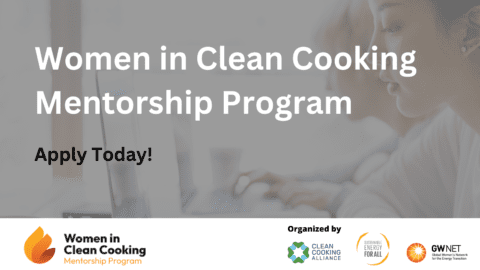GWNET brings you the 12th instalment of the “Meet the Women in the Energy Transition” series which celebrates the work and achievements of the women who are part of GWNET’s 2/2019 Mentoring Programme. This mentoring programme contains 22 mentee-mentor tandems, with mentees from over 15 countries. Meet GWNET mentor, Corina Radu. Corina is a senior expert with 10 years’ experience in the design and management of international capacity building projects and knowledge management frameworks in the energy sector.
1) Tell us a little about yourself. What do you love most about what you do?
I have 10 years’ experience in the design and management of international capacity building projects and knowledge management frameworks in the energy sector, focused on collaboration and co-creation of good corporate practices and long term private-corporate partnerships. In my field of expertise where the goal is the social license to operate, my motivation is knowing that my work is a bridge between companies and communities through strategic projects with carefully designed stakeholder engagement processes and outcomes, eventually winning the hearts and minds of key decision-makers.
2) What were your goals when you started working in sustainable energy? Have these evolved?
Of course; they are continually evolving. Adaptation and flexibility are key to success in my opinion. When I began my career, I had various roles which gave me the opportunity to learn a lot and adapt my goals to each situation presented. However, all of these different roles had a common factor and that was improving human life, connectivity and partnerships creation.

3) What are the opportunities for sustainable energy growth in your country?
I believe sustainable energy is a valuable source of growth power in any country which is fortunate to have natural resources. As I was born in one country (Romania) and live in another (Austria), I have to say that both are very fortunate to have a wealth of opportunities in terms of sustainable energy, including wind and solar energy, hydropower and biomass. The circular economy is also a very big topic on the growth agenda. But I must also say that there is a big difference in terms of legislation and policy and this means that one key to harnessing all the existing opportunities is to start public-private consultations to create and adopt the right policies, reform national energy legislation and have the energy bodies to implement it.
4) What challenges have you faced in the sector? Can you tell us how you overcame (or are overcoming) these challenges?
There are a lot of challenges such as women’s jobs and representation in this non-traditional sector, which is very different in Romania and Austria. The gender pay gap is unfortunately still one of the biggest unsolved problems, not only in this sector but worldwide. I believe that this is not due to women’s performance at work but a problem resulting from societal biases and poor education. In this case, as well, the solution is not only about women standing up for their rights, it is about getting this message to the highest political level and enabling legislation to allow societies to evolve towards fairness and equality. Look at Iceland, for example, adopting the pay legislation, this is something all countries can do.
5) Why did you join the GWNET Mentorship Programme? What do you hope to achieve?
I joined the GWNET mentorship programme from the desire to share my experiences and specific knowledge with younger professionals who are interested in making energy projects sustainable. So far, I have been happy to share interesting concepts such as social responsibility and a circular economy, with my mentee. If I am able to bring additional knowledge to the table, boost the creation of ideas or support professional development, then my mentoring goals are achieved.
6) What advice would you give to women hoping to join the sustainable energy sector?
The energy sector has the largest impact on our lives; as the energy demand grows exponentially, the lack of energy in parts of the globe grows as well. So, it is a sector where things evolve and anyone has the chance to create a positive impact, influence people and open ways to unlock finance and partnerships. It requires many skills, like communication, dialogue, trust and cooperation, which women are the best at, in addition to strong technical backgrounds.
If you are interested in knowing more about GWNET’s mentoring programmes, this comprehensive article outlines our work in this area.
Become a mentor – what’s in it for you?
GWNET is looking for senior professionals who are eager to make a difference and have a positive impact on a younger woman’s career in the energy sector. With the ever-changing dynamics of the business fields, digitalisation, knowledge and knowledge sharing has become more important than ever. As a mentor, you get the opportunity to give something valuable back to more junior professionals and to expand your own knowledge through your mentees’ perspective. Mentoring will contribute to personal and professional development for both you and your mentee, as well as, shaping the direction of future generations within your field of expertise.
If you are interested in volunteering as a mentor in one of GWNET’s mentoring programmes (which involves approx. 1 – 1.5 hours of engagement per month plus optional participation in knowledge-transfer webinars), kindly fill-in the Mentor Datasheet.




